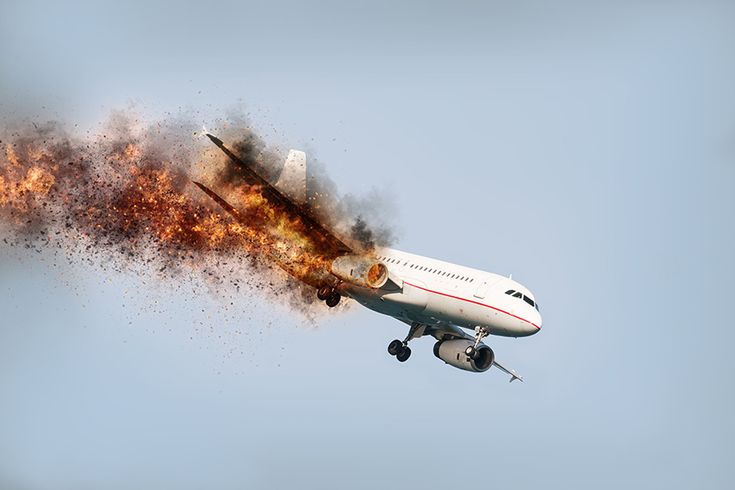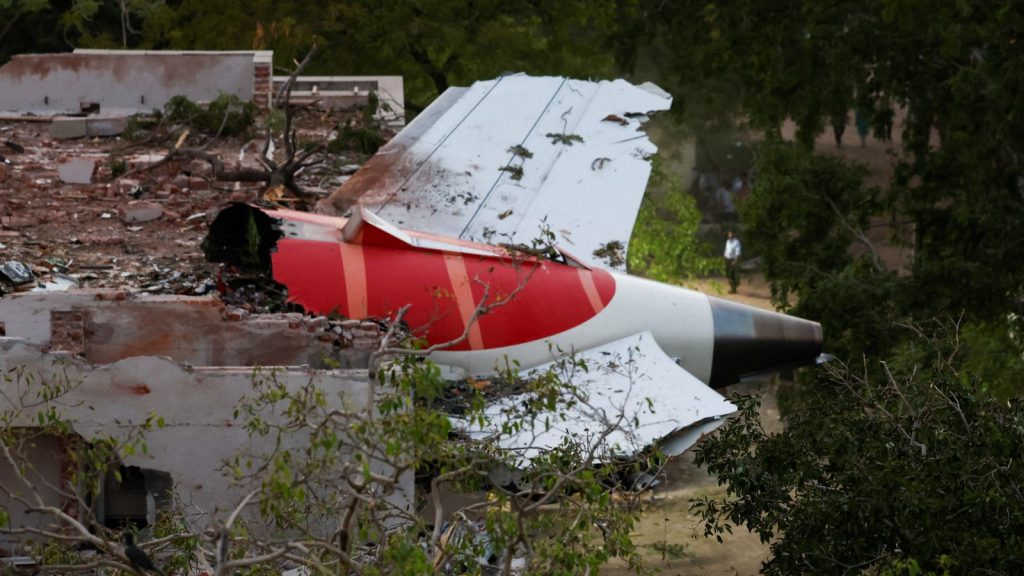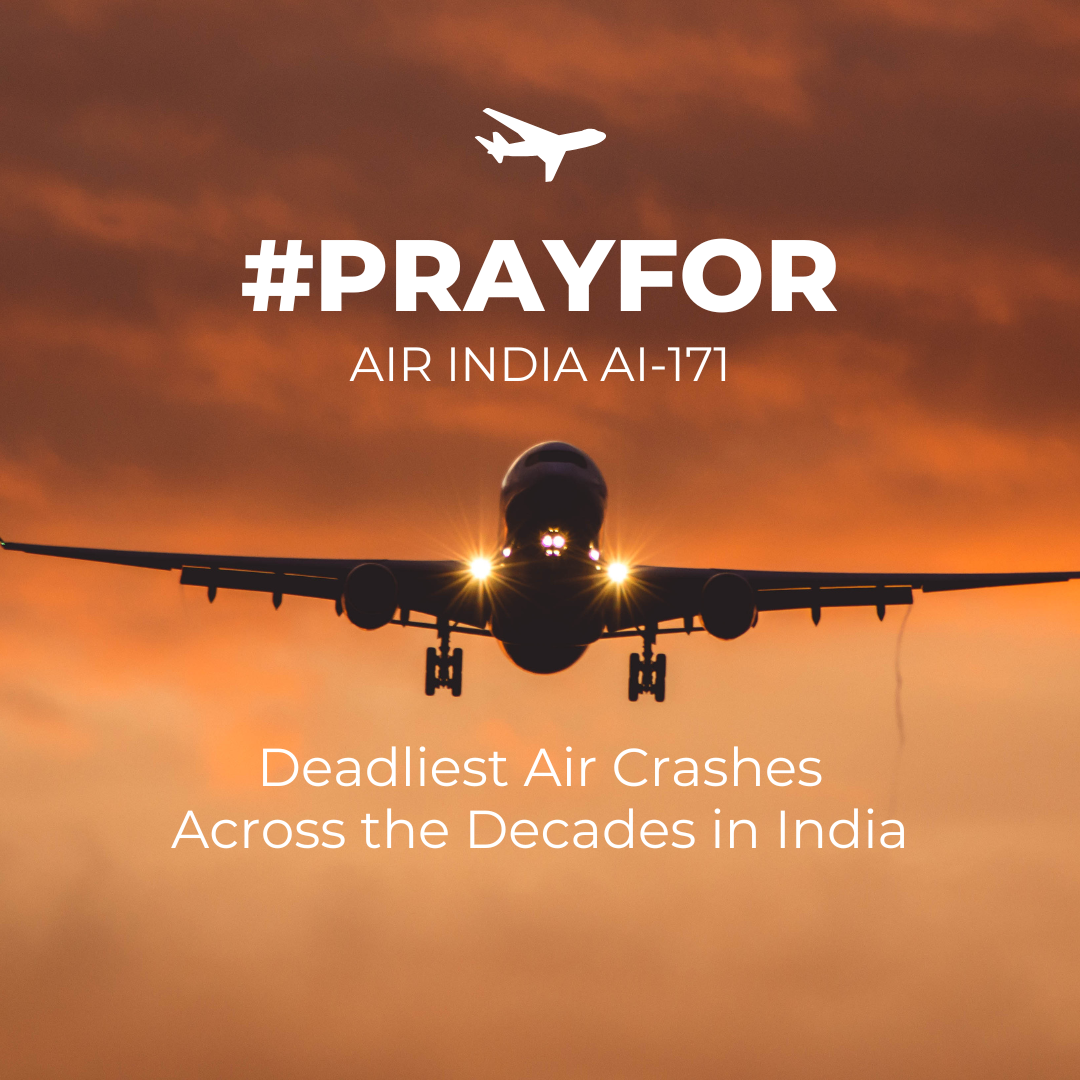Travelling through Air mode is the fastest way to reach your destination. With the change of era, now people are most often travelling by flight. The history of the aviation industry has never been smooth, with tragic accidents, loss of lives, industry learns to improve safety.
In this article, we will talk about India’s deadliest air crashes across decades.
1953, BOAC Flight 783
The BOAC Flight 783, from Singapore to London Via Calcutta (Kolkata), broke up mid-air shortly after take-off from Calcutta. In this crash, 43 people died, and after the investigation it revealed that the jet suffered from metal fatigue. After this accident, the design of aircraft pressurization systems changed, and it shaped modern jetliner safety.
1978 – Air India Flight 855
The Mumbai-Dubai Air India Flight 855 crashed into the Arabian Sea, off the coast of Mumbai, shortly after take-off. Due to the malfunction in the cockpit of the plane, the pilot lost control, and 213 people died in the accident. This incident highlights the necessity of cockpit resource management.

1982 – Air India Flight 403
A Kuala Lumpur to Mumbai Air India Flight 403 crashed while attempting to land in heavy rain, it caught fire, and 17 people died. After this, the weather-related landing protocols were enhanced.
1988 – Indian Airlines Flight 113
A Mumbai-Ahmedabad-bound Indian Airlines Flight 113 crashed after the pilot lost altitude due to poor weather conditions. The plane struck trees and a high-tension electricity transmission pylon. In this accident, which occurred in 1988, 133 people died. The cause of this accident was non-adherence to the protocols and failure of crew members to monitor the display properly. The impact of this collision emphasized the need for Instrument Landing Systems (ILS).
1993 – Indian Airlines Flight 491
The Aurangabad-Mumbai Indian Airlines Flight 491 crashed shortly after take-off from Aurangabad airport. The lorry was crossing the runway, and the aircraft struck it, and afterwards it hit a high-tension powerline. In this accident, 55 people died and raising a question about the poor coordination of ground-level operations.

1996 – Saudi Arabian Airlines Flight 763 & Kazakhstan Airlines Flight 1907
The deadliest collision in the aviation industry, when Delhi-bound Saudi Arabian Airlines Flight 763 collided mid-air with Kazakhstan Airlines Flight 1907 at Haryana’s Charkhi-Dadri. The miscommunication with air traffic control and outdated equipment were the main reasons for the destruction. All 349 people on both flights died. Afterwards, the installation of Traffic Collision Avoidance Systems (TCAS) became mandatory in Indian Airspace.
2010 – Air India Express Flight 812
The Dubai-Mangalore Air India Express Flight 812 overshot the runway and crashed while landing at Mangalore International Airport. In this tragedy, only 8 people survived, and 158 people died. The pilot warned several times, but the continued landing approach was the reason for the threshold. Further, the industry focused on stricter protocols for pilot fatigue and runway safety.
2020 – Air India Express Flight 1344
A Dubai to Kozhikode (Calicut) Air India Express Flight 1344 skidded off the tabletop runway due to heavy rain and fell into a 30-foot gorge. The aircraft broke into 2 parts, and in this accident, 21 people died.
2025 – Air India Flight 171
The London-bound AI 171 (Boeing 787‑8 Dreamliner, tail VT‑ANB) crashes 33 seconds after takeoff from Ahmedabad Airport. This is the nation’s worst air tragedy in 3 decades. A total of 242 passengers boarded the flight, among whom 12 were crew members. The aircraft struck into medical staff hospital mess, and at least 50 more students were injured. Only one passenger survived this tragedy.

Why did AI-171 go down?
If we look at the scenario, there are multiple reasons for the tragedy, though the investigation is still on, which gives a clear picture of the accident. (Source – HT)
- The dual engine and thrust failure, but the underlying causes are still unclear.
- A malfunction in flaps can prevent climbing recovery.
- Contaminated fuel can starve both engines and impact the fuel flow system.
- Overweight aircraft may be unable to sustain the climb in hot weather when the air is thinner.
- Multiple large birds strike the aircraft during take-off.
Final Thoughts
These accidents left behind a stream of grief but also played a vital role in improving the aircraft systems, protocols, and safety reforms. The aviation industry learned a lesson from these incidents and has shaped into a safer place for us.
Pic Credit: Google & Pinterest



